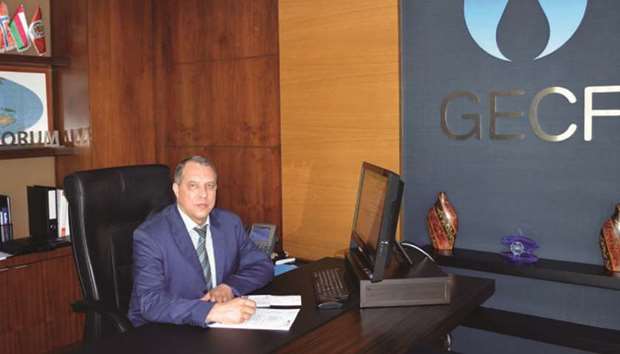Gas Exporting Countries Forum countries are expected to commission in excess of 140bn cu m a year (Bcm/y) of new gas pipeline capacity over the 2018-2020 period, according to GECF secretary-general Dr Yury Sentyurin.
Russia accounts for 89% of this new GECF gas pipeline capacity. New prospective natural gas pipelines facilitate increasing stability in energy partnership between GECF and importing countries, he said.
Gas pipeline infrastructure plays critical role in providing security of supply, Sentyurin said in an interview with Gulf Times.
In this regard, the producing and exporting countries, including the GECF countries, need to continue investing heavily in new infrastructure while ensuring high operational performance of the existing gas pipelines, he said.
The global energy market architecture is characterised by complex dynamics surrounding the supply and demand for energy, intensified by the discrepancies amongst economies, poverty level, repartition of the resources, geopolitical issues and the climate change issues.
In this context, the issue of energy security, notably the security of gas demand and supply is great of importance for us; and the GECF countries want to create a new understanding of energy security, one that holistically involves energy markets and identifies a position that is recognised and accepted, to the highest possible degree, by all market participants.
In the 4th GECF Summit Declaration, member countries highlighted the importance of natural gas in enhancing energy security as well as of natural gas markets stability and security of supply and demand to ensure that sufficient investments through all the gas value chain are undertaken in a proper timing to meet increasing global gas demand.
“We at the GECF believe that the security of gas supply implies the stability of gas market and the security of supply and that of demand are two sides of the same coin. The GECF is committed to ensuring security of gas supply both in the forms of pipeline gas and LNG to the world in a sustainable manner and we encourage dialogue on these issues with all stakeholders to ensure the gas market is balanced,” Sentyurin said.
He said, “Thinking about LNG, based on the expected financial investment decisions (FIDs) in 2018 and 2019, GECF will bring more than 65mn tonnes per year by 2023-2024 of new LNG capacity to the market. However, combination of factors such as higher costs, uncertainty over demand (long term contracts), and reduced availability of investments means that the security of gas supply could be negatively impacted as some LNG projects could be delayed or effectively cancelled.”
Business / Business
GECF countries need to continue investing heavily in new infrastructure: Sentyurin

Sentyurin: Committed to ensuring security of gas supply.

